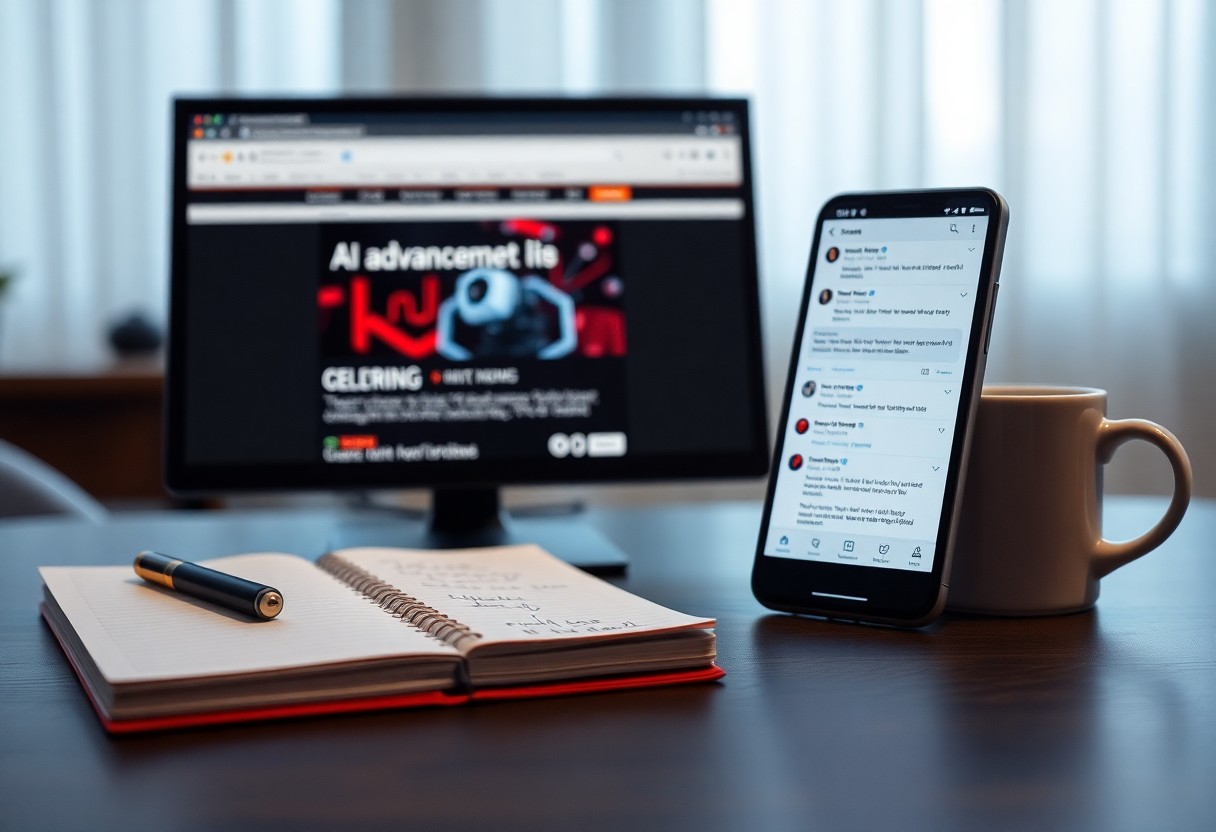OpenAI Introduces GPT-4.1
Assuming you’re looking for a smarter, faster AI, OpenAI’s GPT-4.1 delivers just that. With new Nano and Mini variants, it’s designed to be more efficient, saving you time and resources. Whether you’re drafting emails or analyzing data, this upgrade offers smoother performance while keeping costs low. It’s a solid step forward for small businesses wanting AI that works harder for them.
Google Unveils Gemini 2.5 Flash
Even if you’re new to AI, Gemini 2.5 Flash makes advanced tech easy to use. As Google’s first hybrid reasoning model, it lets you toggle between fast answers and deep analysis—perfect for quick decisions or detailed research. It’s built to adapt to your needs without slowing you down.
Flash brings speed and flexibility, but there’s more. Its toggle thinking feature means you can switch between instant responses and thorough reasoning, ideal for tasks like customer support or market research. However, its hybrid approach may require some learning if you’re used to simpler tools. On the upside, it integrates smoothly with Google Workspace, boosting productivity without extra steps. For small teams, this could mean doing more with less effort.

Microsoft Copilot Studio Launches Computer Use Feature
Clearly, Microsoft Copilot Studio now lets AI control your desktop apps, making tasks faster. You can automate workflows, like filling forms or managing files, without lifting a finger. This feature is built for small businesses, saving you time on repetitive work. Just set it up, and Copilot handles the rest—no coding needed.
Anthropic’s Claude Research Beta Integrates with Google Workspace
You can now use Claude’s AI directly in Google Docs, Sheets, and Gmail. It helps draft emails, analyze data, or summarize documents in seconds. The beta is free, so you test it before full release. Perfect for small teams wanting smarter tools without extra costs.
To get started, enable the Claude add-on in your Workspace. It reads your files, so check permissions to keep data safe. The AI suggests edits, but you control final changes. Early users report 30% faster document work, but avoid sensitive info until full security reviews are done.

XAI Launches Grock Studio with Memory Feature
Little did you know, XAI just dropped Grock Studio, an AI tool that remembers your past chats. This means it learns from your conversations, making responses more personal over time. If you run a small business, this could save you hours by recalling preferences, past projects, or customer details. No more repeating yourself—just smoother, smarter interactions.
OpenAI Developing X-Like Social Network
Little has been confirmed, but OpenAI is reportedly building a social network similar to X (formerly Twitter). The goal? To gather real, organic conversations for training AI models. For you, this could mean better, more human-like AI tools—but also raises questions about privacy and how your data might be used.
Studio insiders suggest the platform will prioritize transparency, letting users opt out of data collection. However, the risk of misinformation spreading through AI-generated content is real. If you’re a small business owner, this could impact how you engage online—balancing smarter tools with ethical concerns.
Kling Phase 2.0 Revolutionizes Text-to-Video Generation
Little did you know AI could turn your words into lifelike videos so easily. Kling Phase 2.0 upgrades text-to-video with smoother motion and sharper details, making it perfect for small businesses needing quick ads or social media clips. You just type a prompt, and the AI handles the rest—no fancy skills required. It’s faster than older tools, saving you time while keeping quality high.
Google Introduces DolphinGemma
The future of AI isn’t just about humans—Google’s DolphinGemma aims to decode dolphin sounds, opening doors to cross-species communication. For you, this means smarter marine research tools or even wildlife content creation. It’s a small step toward understanding nature’s mysteries, powered by AI.
Phase into the details: DolphinGemma isn’t just a novelty—it’s a breakthrough with real risks. If successful, it could reshape how we interact with animals, but misuse might harm marine life. Google claims it’s 20% more accurate than previous models, yet ethical debates loom. For your business, this could mean unique eco-tourism campaigns—if handled responsibly.
